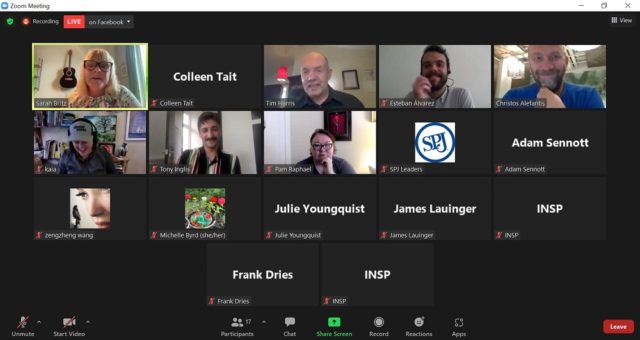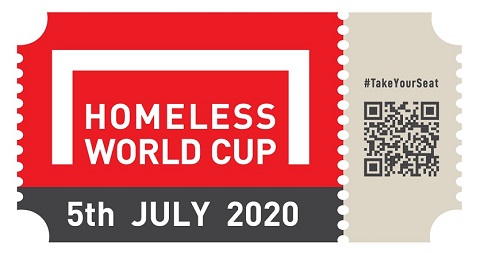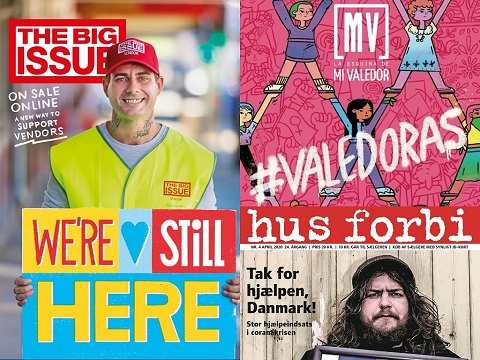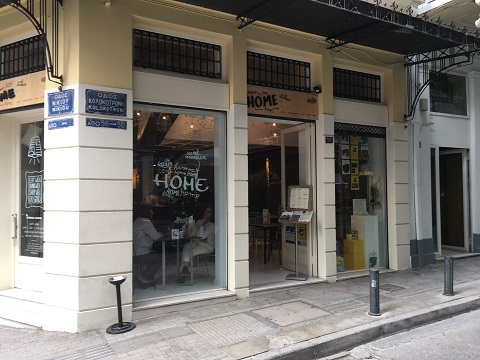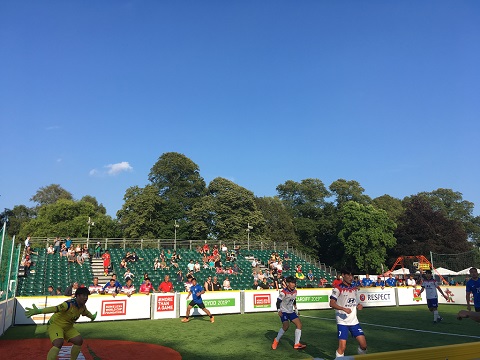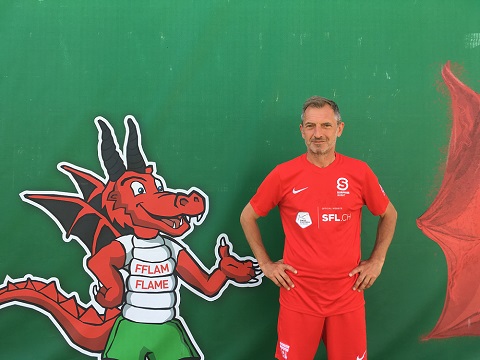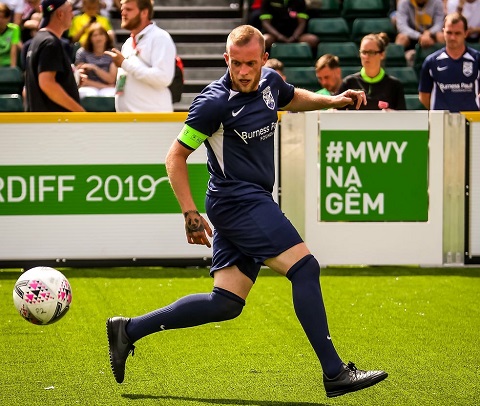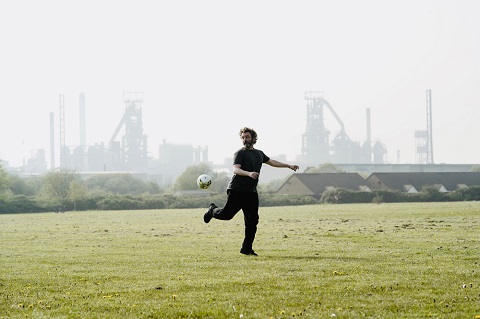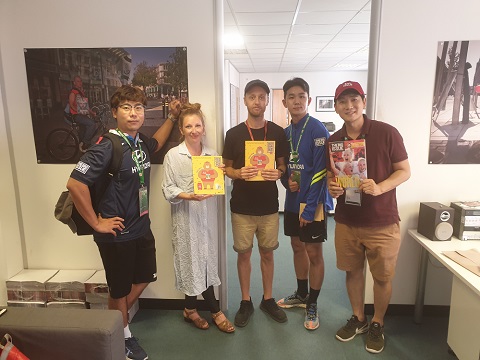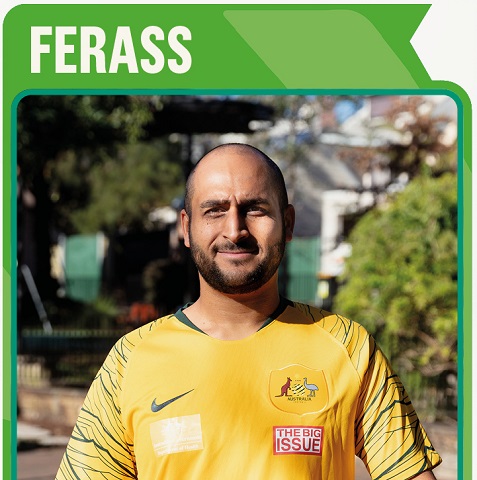Players of all ages benefit from participating in the Homeless World Cup, but for those on the younger side, it is surely a defining experience in early life, no matter their reasons for participating.
The Greek national team that was represented in last week’s tournament is made up of players from the street paper Shedia’s adjacent street soccer programme.
16-year-old Angela Ntoumanoglou spoke to INSP fresh from a hard-fought, but ultimately losing, performance to Croatia. While some of the players were unbothered by the end result (9-4 in favour of the Croatians), Angela was visibly perturbed, unable and unwilling to stop her passion for the game from showing.
![Angela (third from left) with the Greek Homeless World Cup team, made up of players from the adjacent street soccer project of the country's street paper Shedia. [Courtesy of Shedia]](https://hub.insp.ngo/wp-content/uploads/2019/08/INSP_Greece-and-Korea_HWC_1.jpg)
“I love playing football,” says Angela, after collecting herself. She came to be part of the Shedia team while living in an institute for young people with disruptive family upbringings. She has been playing regularly now for two years, culminating in this appearance in Cardiff for the competition. She intends to continue after returning home.
“It allows me to take out my thoughts, frustration and tensions from my life on the field and on the ball,” she explains. “Football for me is a way out of my problems. I just love playing. When I was younger, I wasn’t permitted to play, but now I am, I intend to play for my whole life.”
As we chat, the US teams surround us, and the South African squad make a typically flamboyant exit from the player’s area. Despite having a competitive edge, Angela agrees this is what it’s all about. “The Homeless World Cup is a once in a lifetime experience. I cannot describe how I feel to be here. It’s wonderful. There are no words, really. I have made a lot of friendships, and I hope they last a long time. I have taken some life lessons from here that will help me for the rest of my life. It’s perfect.”
At the Homeless World Cup, there are two tournaments running parallel – one for men and one for women. Some teams though, as is the case for Angela and her Greek teammates, choose to field mixed sides. For Angela, this is not a problem. “I look at everybody equally – I don’t separate. I will mark a man as I would a woman, with the same passion. I love that. And I haven’t had any problems with my teammates. Everyone treats me equally and respectfully.”
Another young player representing his country for a street paper-affiliated team at the Homeless World Cup is Korea’s Jungho Kang.
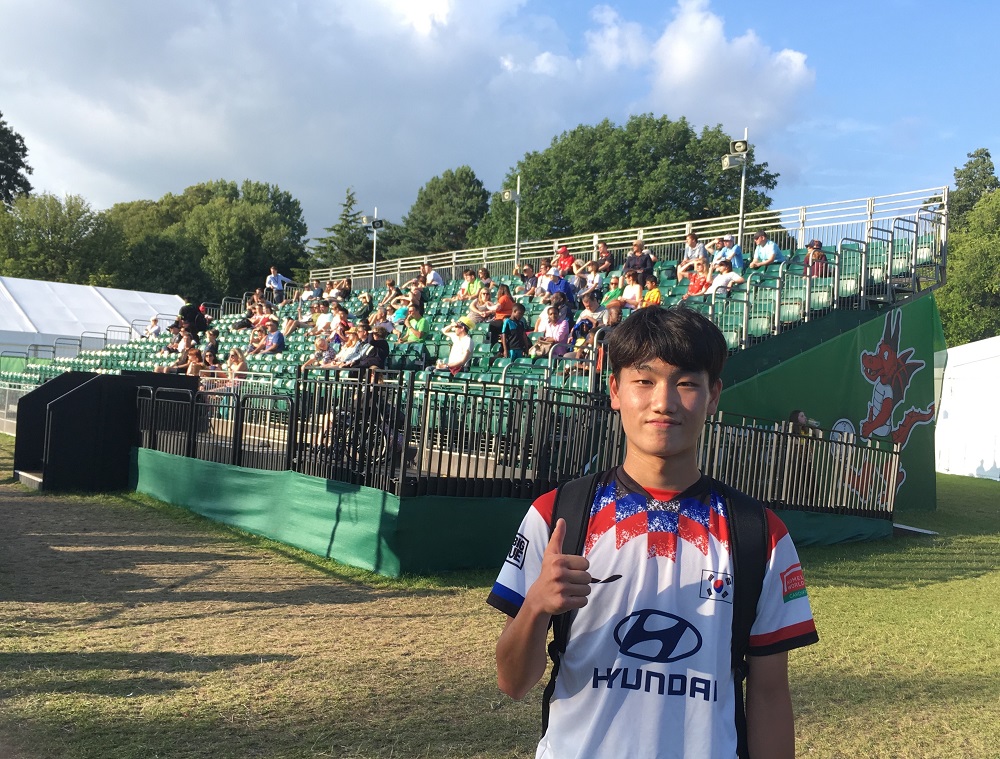
Kang, 17, hasn’t experienced the upheaval in his life that Angela has, but he is aware of how character building playing sport, and participating in international tournaments like the Homeless World Cup, can be.
“By playing here, I have been able to gain the strength to live with more power,” he says.






